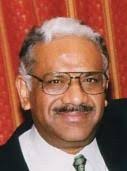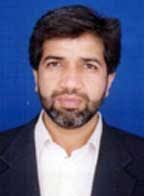
In a country which has suffered successive dictatorships characterised by ridiculous controls on expression, no one can really contend against the argument for a free media. Neither can anyone condone excessive regulation or control of media. But this is precisely where we skate on thin ice. Free media is not synonymous with responsible media.
Just consider what passes for news analysis on most, if not all, local television channels. Much of it, at best, is superficial; at worst, positively misleading and dangerous. From hate-speech against other religions and minority sects to the exposition of long-disproved conspiracy theories, Pakistani news channels have it all.
While it would perhaps be asking too much of the media, the men and women who project views and help project them, to be devoid of the social prejudices and intolerance that permeates our society, we can at least expect and demand substantive analysis on technical issues, notably the economy. (Source)





پاکستانی میڈیا کا طریقۂ کار یا ہر حکومت کی عادت؟

پاکستانی میڈیا آج تک اپنے لیے ایک ضابطہ اخلاق پر متفق نہیں ہو سکی
دو سال قبل تین نومبر کے دن پاکستانی ذرائع ابلاغ کی زبان بندی کی گئی، ’ناپسندیدہ‘ صحافتی اداروں کو لمبے عرصے کے لیے بند رکھا گیا اور ایک ڈکٹیٹر کی ذاتی انا کو تسکین دے کر ہی یہ ادارے ایک ایک کر کے کھل سکے۔
اس تین نومبر کے حالات بالکل مختلف ہیں۔ ڈکٹیٹرشپ کی جگہ ایک منتخب حکومت ہے جس میں شامل اکثریتی جماعت خود کو جمہوریت کی چیمپئن کہتی ہے، جبکہ چھوٹی حلیف جماعتیں بھی میڈیا کی آزادی کی زبردست حامی ہیں۔ اور اس کے باوجود پاکستانی میڈیا کے سر پر حکومتی کنٹرول کی تلوار ایک بار پھر لہرا رہی ہے اور اس تلوار کی دھار اتنی ہی تیز ہے جتنی دو سال پہلے تھی۔
چند روز پہلے اطلاعات و نشریات کی قائمہ کمیٹی نے پیمرا قوانین میں ترمیم کی سفارشات طے کی ہیں جن میں بہت سی وہی شقیں شامل ہیں جن کی خالق مشرف حکومت تھی۔ ان سفارشات پر بات کرنا تو قبل از وقت ہو گا کیونکہ ابھی انہیں قومی اسمبلی میں پیش کیا جانا ہے جہاں بحث کے بعد ان میں تبدیلی بھی ہو سکتی ہے، لیکن مقامی میڈیا میں چیخ و پکار کا سلسلہ اسی دن سے جاری ہے جس دن قائمہ کمیٹی کا اجلاس ’بند کمرے‘ میں ہوا اور وفاقی وزیر قمر الزمان کائرہ نے اس بارے میں صرف اتنا بتایا کہ ان پر اپوزیشن سمیت تمام سیاسی جماعتوں کی جانب سے دباؤ تھا کہ میڈیا کو ’ذمہ دار‘ بنایا جائے اور یہ کہ کمیٹی کی سفارشات متفقہ طور پر منظور کی گئی ہیں۔
کیا پاکستانی میڈیا کے طریقہ کار میں بہتری کی ضرورت ہے یا ہر حکومت کو اپنے بحرانوں کا ملبہ میڈیا پر ڈالنے کی عادت ہو چکی ہے؟ شاید دونوں ہی باتیں درست ہیں۔
موجودہ حکومت اگر جمہوری روایات کو اپنی میراث سمجھتی ہے تو جنرل مشرف اور ان کے حواری بھی میڈیا کو آزادی دینے کے دعوے کرتے نہیں تھکتے تھے۔ لیکن جس طرح مشرف حکومت کو میڈیا پر پابندیاں لگانے کا خیال اس وقت آیا جب وہ عوام میں انتہائی غیر مقبول ہو چکی تھی، پیپلز پارٹی کو بھی میڈیا کی خامیاں تبھی یاد آئیں جب اس کی مقبولیت کا گراف تیزی سے گر رہا ہے۔
دونوں حکومتوں کے میڈیا مخالف اقدامات میں یہ قدر بھی مشترک ہے کہ پیشہ وارانہ معیار کو بہتر بنانے کی بجائے ان کا زور حکومت پر ہونے والی تنقید کو بند کروانا اور چند افراد کی ذاتی پسند ناپسند کو پورے میڈیا پر ٹھونسنا ہے۔ جیسے قائمہ کمیٹی میں شامل مسلم لیگ ق کی رکن قومی اسمبلی بشریٰ رحمان نے ٹی وی پر کمیٹی کی کارروائی کا دفاع کرتے ہوئے میڈیا پر الزام لگایا کہ وہ حکمرانوں کی تضحیک کر رہا ہے اور نظریہ پاکستان کے خلاف کام کر رہا ہے۔ انہوں نے جذباتی ہو کر کہا ’میں نے خود دیکھا اور سنا ٹی وی کا ایک اینکر کہہ رہا تھا کہ انڈیا کا کلچر ہمارے کلچر سے بہتر ہے۔ میں تو یہ بالکل برداشت نہیں کر سکتی۔‘
اس کے جواب میں تو یہی کہا جا سکتا ہے کہ اگر گرمی برداشت نہ ہوتی ہو تو کچن سے باہر نکل جائیں۔ یوں بھی نظریہ پاکستان، اسلامی روایات، قومی سلامتی، اور اخلاقی اقدار ایسی اصطلاحات ہیں جن کی تشریح اپنی مرضی سے کر کے کسی کو بھی کٹہرے میں کھڑا کیا جا سکتا ہے۔ اور مبہم اصطلاحات کو قانون کا حصہ بنانے کا مقصد بھی یہی ہوتا ہے۔
لیکن پاکستانی میڈیا بھی حکومتوں کے اس کھیل میں برابر کا شریک ہے۔ ایک طرف صحافی برادری ہے جو ہر پابندی پر شور مچانے، کالی پٹیاں باندھنے اور آزادیِ صحافت پر تقریریں کرنے میں آگے آگے ہوتی ہے لیکن آج تک اپنے لیے ایک ضابطہ اخلاق پر متفق نہیں ہو سکی۔ اور دوسری جانب میڈیا مالکان ہیں جن کا پہلا اور آخری مقصد منافع کمانا ہے اور جنہوں نے ہر موقع پر صحافت کی آزادی پر نفع کمانے کی آزادی کو ترجیح دی ہے۔
دو برس پہلے جب جنرل مشرف نے تمام نیوز ٹی وی چینل بند کروا دیے اور میڈیا کے نمائندوں کو دعوت دی کہ جیسے ہی وہ کسی ضابطہ اخلاق پر اتفاق کر لیں گے پابندی اٹھا لی جائے گی، تب بھی صحافتی تنظیمیں مشترکہ لائحہ عمل تیار کرنے میں ناکام رہیں اور چند ٹی وی چینل مالکان نے اپنے طور پر ایک ضابطہ بنا کر اور حکومتی شرائط مان کر اپنا کاروبار چلانے کا انتظام کیا۔
آج بھی اس ملک کے ٹی وی چینل ان مسلمہ صحافتی اصولوں کی کھلم کھلا خلاف ورزی کرتے رہتے ہیں جن پر دنیا کے ترقی یافتہ میڈیا میں مکمل اتفاق پایا جاتا ہے۔ مثلاً جنسی زیادتی کا شکار ہونے والی عورتوں اور بچوں کو نہ صرف دکھانا بلکہ ان کا نام پتہ بھی بتانا، لائیو ٹاک شو میں ایک مہمان کو اجازت دینا کہ وہ دوسری مہمان پر جنسی نوعیت کی بہتان تراشی کرے اور پھر اس پروگرام کو فخریہ طور پر بار بار دکھانا، مسابقت کی دوڑ میں بغیر تصدیق خبر چلانا اور غلط ثابت ہونے پر بغیر معذرت یا تصحیح کے محض اسے ہٹا دینا۔۔۔ اور حکومتِ وقت کی مخالفت اور حمایت دونوں کوششوں میں معروضی حدوں سے تجاوز کرنا۔
کل کی طرح آج بھی حکومت کا مسئلہ یہ پیشہ وارانہ خامیاں نہیں لیکن میڈیا پر پابندیاں لگانے کے لیے انہیں کل بھی استعمال کیا گیا، آج بھی کیا جا سکتا ہے اور آئندہ کی حکومتوں کے لیے بھی یہ راستہ اس وقت تک کھلا رہے گا جب تک پاکستانی صحافی خود اپنا احتساب کرنے کا کوئی نظام وضع نہیں کرتے اور اس نظام پر سختی سے عمل نہیں کرتے
The terror disconnect
Still, it would be unfair to point the finger at just one misguided madrassah and its brand of fanatics who have a history of nurturing extremists — and getting away with it. Blame should also be assigned to their known well-wishers who bailed them out in the aftermath of the Lal Masjid operation. Remember Chaudhry Shujaat offering the mullah and his supporters more than a shoulder to cry on? The PML-Q, then the ruling party, its chief and his cousin Pervaiz Elahi, who was then the chief minister of Punjab, gave what they called the ‘victims’ of Lal Masjid life-long scholarships and sustenance allowances, ostensibly from their own pockets. One of their deputies, Sheikh Rashid, the proud son of Rawalpindi, kept mum on the whole issue even though he bore his total allegiance to General Musharraf who had ordered the storming of Lal Masjid.
A few weeks and a number of court hearings later, even the cleric Abdul Aziz was released on bail, when he should have been tried under a military court and dispensed speedy justice on the basis of his hate-mongering and waging war against the state that resulted in the killing of many.
But not all rot lies in the bad past over which Musharraf presided. The media’s role by and large remains sympathetic towards an ideology which continues to bring death and destruction to our cities. Analysts and TV anchors don’t tire of voicing their favourite solution of offering the extremists dialogue instead of the bullet to end their killing spree. The media also continues to insist this is not our war — not even just yet. Their defiant heroes remain politicians like Imran Khan and leaders of the Jamaat-i-Islami who have now vowed to raise no less than a ‘lashkar’ to oppose the National Reconciliation Ordinance in the streets of Pakistan if extremists’ violence allows them to do so.
Then there is Nawaz Sharif and his PML-N lackeys on the other hand: no word of unqualified condemnation of terrorists ever crosses their lips. As for the PPP, there is now little to stop the ‘relief’ that its broad-based NRO in its existing, amended form, promises to all killers and crooks, including the terrorists, despite the fact that they have their booby traps and suicide bombers killing innocent people in our cities and hardcore, armed terrorists fighting the army in Fata. Is there any sense left anymore in what we are doing to ourselves?
As Rawlpindi, Islamabad, Peshawar, and Lahore simmer with fear and tension, and Karachi and Quetta watch in disgust, bracing themselves to be the next potential targets, internecine, petty politics is all our leaders have time for. The biggest culprit present among us today is the lingering and shocking state of denial, despite the presence of the evil amidst us that is killing and maiming as many as it can on a given day.
American aid, the NRO, the street protest, the call for a mid-term election, even the crippling power and economic crisis can wait. What cannot wait for the public backing expressed through their leaders is the war on terror that is being fought in our cities today. This is a war we cannot afford to lose; it’s time we owned and fought it with full power of the state and the people behind it. After all, lofty, elusive ideals like democracy and rule of law cannot be safeguarded or held dear by doing nothing to stop the death and destruction that is all around us today.
Murtaza Razvi is Editor, Magazines, of Dawn.
http://blog.dawn.com/2009/11/02/the-terror-disconnect/





















No comments:
Post a Comment
1. You are very welcome to comment, more so if you do not agree with the opinion expressed through this post.
2. If you wish to hide your identity, post with a pseudonym but don't select the 'anonymous' option.
3. Copying the text of your comment may save you the trouble of re-writing if there is an error in posting.